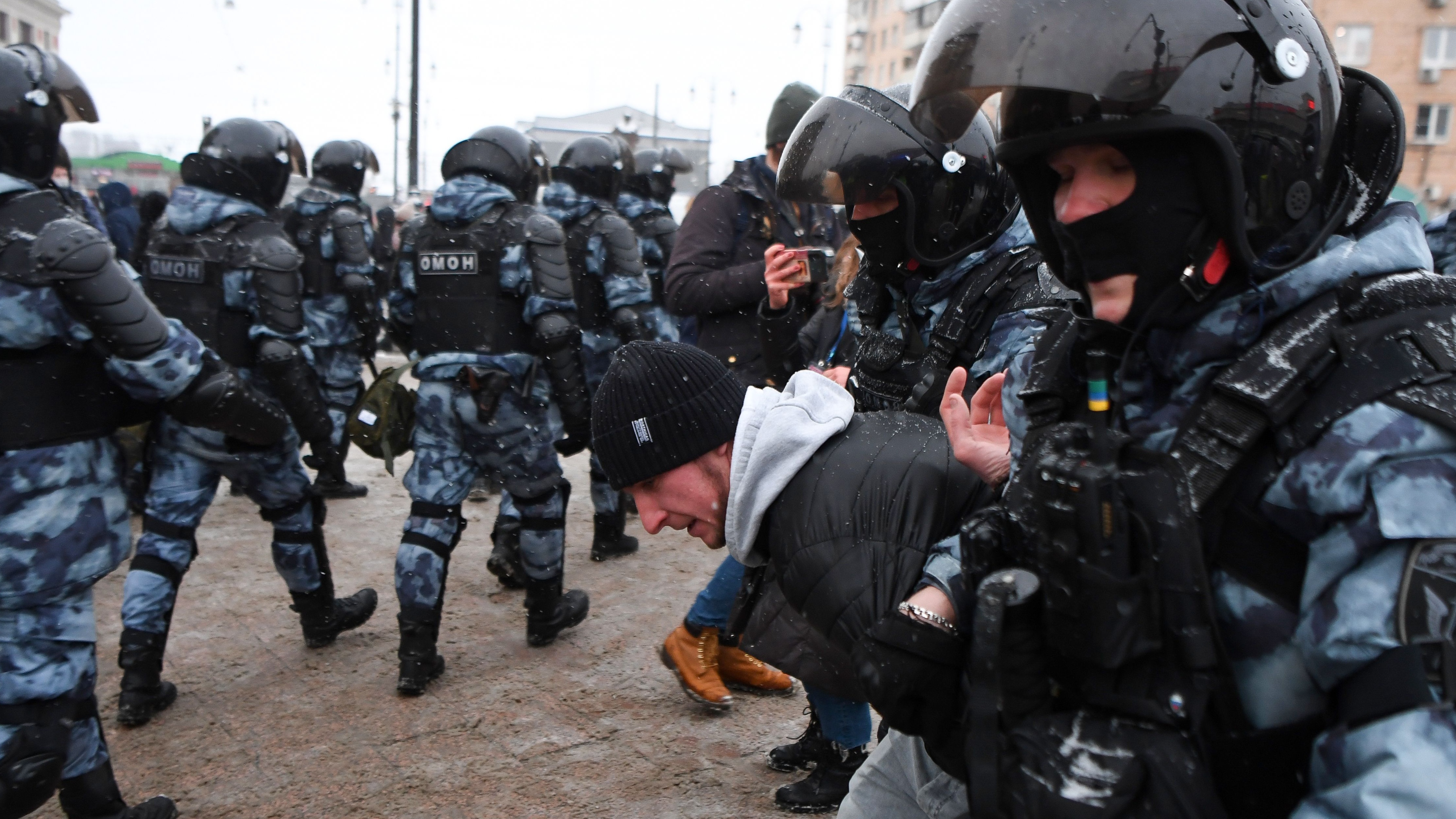What do the Navalny protests mean for Vladimir Putin?
Tens of thousands of young Russians march in fresh demonstrations in support of the anti-Kremlin activist

A free daily email with the biggest news stories of the day – and the best features from TheWeek.com
You are now subscribed
Your newsletter sign-up was successful
More than 5,100 people were arrested in Russia yesterday as protesters hit the streets across the country to demand the release of jailed opposition leader Alexei Navalny.
Police officers used batons, tear gas and electric shock weapons against crowds in cities including Moscow and St Petersburg, in what The Times describes as Vladimir Putin’s “biggest ever crackdown” against dissent. Navalny’s wife, Yulia, was among those seized.
Protests have been taking place since Navalny was arrested at a Moscow airport two weeks ago after returning home from Berlin, where he had spent five months recovering from an assassination attempt blamed on the Kremlin. The authorities claim the opposition leader was supposed to report to police regularly because of a suspended sentence for embezzlement.
The Week
Escape your echo chamber. Get the facts behind the news, plus analysis from multiple perspectives.

Sign up for The Week's Free Newsletters
From our morning news briefing to a weekly Good News Newsletter, get the best of The Week delivered directly to your inbox.
From our morning news briefing to a weekly Good News Newsletter, get the best of The Week delivered directly to your inbox.
With Russia’s next legislative elections due to be held no later than September, Navalny has “reactivated Russia’s political life” at “a bad time” for Putin, says Nikolai Petrov, a senior research fellow at London-based think-tank Chatham House.
In an article for The Moscow Times, Petrov writes that the “brutality of the riot police was not so much a response to any perceived threat from the peaceful protesters as it was an expression of the frantic fear of the Kremlin at Navalny’s decision to return to Russia”.
All the same, Russia is “not on the cusp of a revolution”, says The Times’ Moscow correspondent Tom Parfitt.
“There are no cracks in the military or security apparatus” and “rally numbers are not critical”, he continues. But the scale of the crackdown makes Putin’s previously robust authority “looks vulnerable”, with Navalny offering Russians “a viable substitute” to the 68-year-old president.
A free daily email with the biggest news stories of the day – and the best features from TheWeek.com
BBC Moscow correspondent Sarah Rainsford agrees that the protests do not mean Putin is “about to be ousted”, arguing that “he still has significant support” among Russian voters. But after two decades in power, “the shine has begun to rub off his presidency”, she adds.
With Putin “ready to ratchet up authoritarianism in order to avert a possible threat to his power”, says The New York Times, the turnout at further protests planned for today will indicate “whether more Russians will actively resist such an authoritarian turn”.
As Sky News Russia correspondent Diana Magnay adds, “it is a measure both of the Russian president’s power and his paranoia that he cannot allow peaceful protest”.
“Despite the leeway of the law at his disposal, something is shifting - accelerated by the internet quicksands - which repression may not be able to control,” she concludes.
Chas Newkey-Burden has been part of The Week Digital team for more than a decade and a journalist for 25 years, starting out on the irreverent football weekly 90 Minutes, before moving to lifestyle magazines Loaded and Attitude. He was a columnist for The Big Issue and landed a world exclusive with David Beckham that became the weekly magazine’s bestselling issue. He now writes regularly for The Guardian, The Telegraph, The Independent, Metro, FourFourTwo and the i new site. He is also the author of a number of non-fiction books.